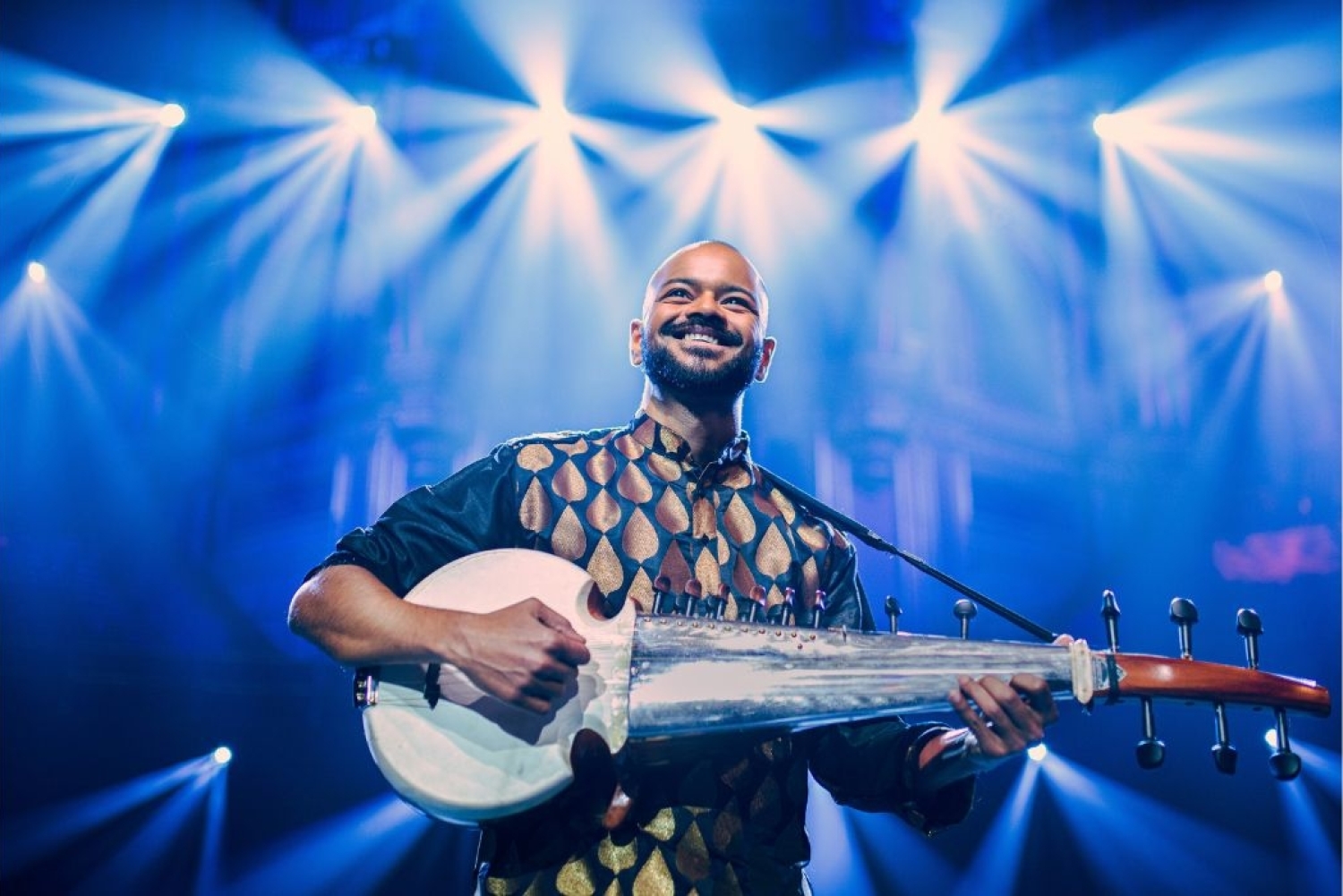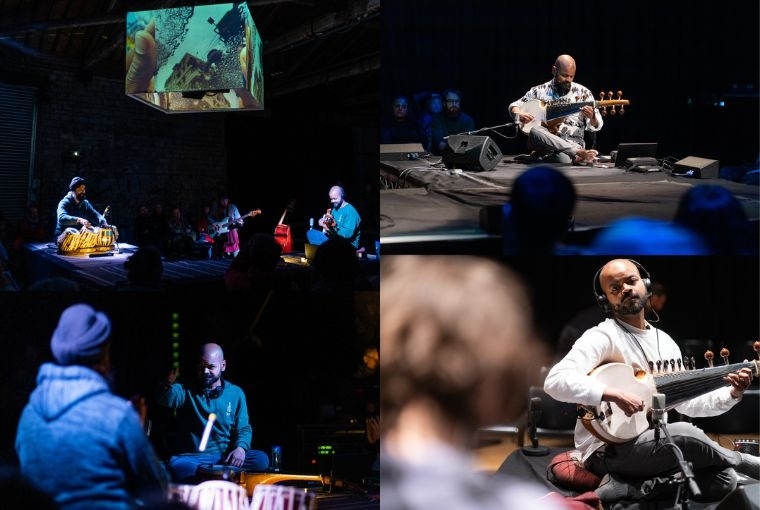

Sarod virtuoso and composer Soumik Datta is set to premiere his latest show, Travellers, in Mumbai on June 13 & 14, marking the culmination of his ongoing residency at G5A. Known for his unique ability to blend Indian classical roots with ambient soundscapes and progressive form, Soumik now steps into what he calls his ‘ear cinema’, an immersive, live experience that dissolves borders between sound, memory, and identity.
‘This is the second sort of residency that I've had through G5A,’ Soumik shares. ‘The first experience was very special. And it's great to continue the relationship and bring the next project here as well.’
In Travellers, Soumik moves beyond the theatrical explorations of his earlier project Borderlands, shifting from stagecraft to a more cinematic use of audio and space. ‘Borderlands was more a play with music and stories of my own experiences at borders that wove through it,’ he explains. ‘Whereas Travellers opens it up and approaches the subject of nation and land through soundscape and new music compositions to try and dissolve the lines that divide places, land, people, ideologies.’
The show blends live performance with a layered sound design, atmospheric elements, field recordings, historical audio clips, and spoken word that anchor each composition in a temporal and geographic context. 'The topic we're addressing is borders and our relationship to nation and land,' he says. 'There’s a moment where we go back in time to the first speech by Jawahar Lal Nehru... the sound design acts as a sort of geo and temporal kind of time travel tool.'

Soumik is joined by a rising ensemble of fellow ‘travellers’: Sayee Rakshith (violin, vocals), Sumesh Narayanan (mridangam), Debjit Patitundi (tabla), Nina Harries (bass, vocals), and Hrith Dey (percussion). Their performance flows with live improvisation and interwoven textures. 'We're examining the past, we are questioning why certain things are the way they are, and why can't they be different? If they are different, what does it allow? Does that allow more inclusivity? And the answer is often yes.'
The sarod, central to Soumik's practice, is not just an instrument but a symbol of balance. One of his earliest musical memories involves discovering his grandmother's sarod after his family migrated to London. 'I remember the sort of the first time I plucked the string... the string rests between two bridges. The tension that holds that string together is what creates that sound. And the two bridges, for me, are one to India and one to my life outside of India. And it's a constant balancing act.'
This sense of balance extends to how Soumik collaborates across traditions. 'For a long time, I did collaborations with Brazilian musicians and orchestras in the West... I’ve been kind of wondering why we're not trying to find the contemporary within the traditional.' His ensemble for Travellers is deeply rooted in Indian classical lineage, yet they collectively reshape it. 'Every trip I come back to India, I’m finding a new generation of incredible talent and exciting new players and voices.’
Underlying this project is also Soumik's critique of modern music consumption. 'Music, unfortunately, has become this sort of background thing... It says that we're scared of, as a society, we're scared of silence. And for me, music really is all about exploring that silence.' He avoids casual listening, preferring instead to approach sound with intention and purpose.
Beyond the shows, Soumik will hold a one-day workshop on June 15 with 15 selected young musicians, piloting a new model of mentorship. 'We're actually piloting a new workshop module... to give them the tools to look at music as a vehicle to talk about their experiences. How can we encourage young people to channel their real-life experiences through music?' The workshop explores identity and creativity not only as performance, but as storytelling and activism. In every note of Travellers, Soumik asks what music can do beyond entertain. He challenges us to listen, not just hear. He creates a stage where borders dissolve, where silence speaks, and where the sound of a single string can stretch between two lives and still hum in tune.
Words Harita Odedara
4.06.2025